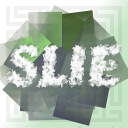
 |
Information Ecosystems |
| More Details | People | Documents & Software |
Welcome to the Web pages of Research Project
Sustainable
Lifecycles in Information Ecosystems (SLIE).
| Universal Information Ecosystems |
Universal Information Ecosystems (UIE) stems from the vision of an emerging information "ecosystem" that constantly scales up or down, evolves and adapts in order to best meet the changing demands of its vast and highly dynamic population of "infohabitants". Infohabitants can be individuals, organisations, as well as virtual entities acting on their behalf, smart appliances, etc., and their number can be in an excess of trillions. UIEs should support the dynamic creation of new types of relations and activities between infohabitants and, in doing so, creates value and degrees of scalability, sustainability and robustness that are well beyond what can be envisaged today.
For more details, look up Future
and Emerging Technologies (FET) pages .
| Purpose |
The overall purpose of this project is to contribute to the development of robust methodologies for the design, deployment and maintenance of successful and effective infohabitants. We will develop, demonstrate and evaluate an experimentally and theoretically justified scientific foundation for engineering future information ecosystems. Many of the principles which we shall apply have their origins in the study of biological ecosystems, where there is already a rich tradition of investigating the dynamics of complex, open systems through combinations of modelling, laboratory experiment and empirical investigation.
The design of each species of infohabitant should take into account basic principles of ecosystem dynamics which will influence the success of the species in its chosen niche. Without this, it is difficult to assess whether inhabitants intended to meet the needs of particular groups of people will be able to achieve their objectives when released into a large information ecosystem. Currently, we lack the empirical basis (via laboratory experiments) to explore information ecosystem dynamics in a controlled way, and we lack the methodological guidance which relates infohabitant designs to ecosystem niches.
Click on link "More Details" above if you
want to know more.
| Context |
The context of this research project is
the Information Society Technologies
(IST) Programme under its 5th Framework
.
| 31 July 2002, W Vasconcelos |